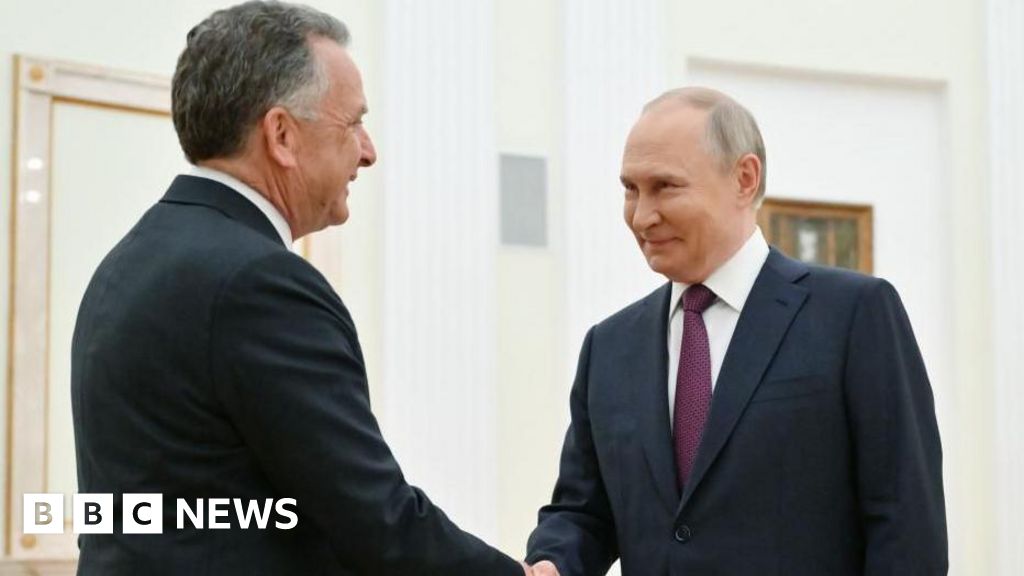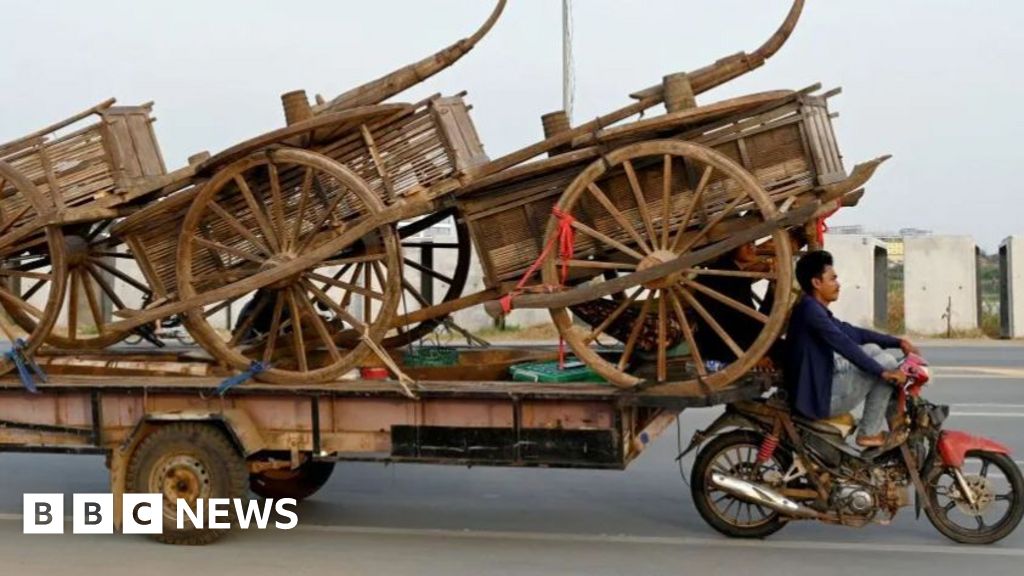- Music
ReutersNew data show most US patients now stay on Wegovy, Zepbound after a year
时间:2010-12-5 17:23:32 作者:News 来源:Fashion 查看: 评论:0内容摘要:Mohammed Ghareeb, a journalist in Rafah, told the BBC that Palestinians had gathered near the aid centre run by the GHF when Israeli tanks approached and opened fire on the crowd.Mohammed Ghareeb, a journalist in Rafah, told the BBC that Palestinians had gathered near the aid centre run by the GHF when Israeli tanks approached and opened fire on the crowd.
"They delivered real change - social justice in Telangana, uniting tribespeople in Chhattisgarh - but failed to forge it into a cohesive political force," he said.At the heart of the failure, he argued, was a dated revolutionary vision: building isolated "liberated zones" beyond the state's reach and "a theory to strike the state through a protracted people's war".

"These pockets work only until the state pushes back. Then the zones collapse, and thousands die. It's time to ask - can a revolution really be led from cut-off forestlands in today's India?"The CPI (Maoist)'s 2007 political document clings to a Mao-era strategy: of creating a "liberated zone" and "encircling the cities from the countryside." But the sympathiser was blunt: "That doesn't work anymore."The party still retains some popular support in a few isolated pockets, primarily in the tribal regions of eastern Maharashtra, southern Chhattisgarh and parts of Odisha and Jharkhand - but without a strong military base.

Ongoing operations by state forces have significantly weakened the Maoist military infrastructure in their strongholds in southern Chhattisgarh. Cadres and leaders are now being killed regularly, reflecting the rebels' growing inability to defend themselves.Mr Venugopal believes the strategy needs rethinking - not abandonment.

The underground struggle has its place, he said, but "the real challenge is blending it with electoral politics".
In contrast, Mr Ganapathy sees little hope for the Maoists to mount a meaningful fightback in the near future and argues that the time has come for a different approach - dialogue.Without the drug, patients lose weight and strength, which means their ability to cope with treatment such as chemotherapy is reduced.
Some experts have predicted shortages continuing until next year.The Department of Health and Social Care has extended a serious shortage protocol for Creon which has already been in place for a year.
This indicates concern about shortages of a medicine and allows pharmacists to give patients an alternative - though they argue other drugs are also in short supply.A spokesperson for the department said the "European-wide supply issues" were caused by manufacturing supply constraints.
- 最近更新
- 2025-07-07 03:04:04Lake Chad Basin: Violence and displacement
- 2025-07-07 03:04:04.css-v2kfba{height:100%;width:100%;}
- 2025-07-07 03:04:04India-Pakistan matches confirmed at ICC Women’s World Cups in 2025 and 2026
- 2025-07-07 03:04:04The best business books to read this summer
- 2025-07-07 03:04:04India says it will ‘never’ restore Indus Waters Treaty with Pakistan
- 2025-07-07 03:04:04Photos: Kenyan police shoot bystander at close range during latest protests
- 2025-07-07 03:04:04‘Thithi president!’: Supporters rally for banned Ivorian opposition hopeful
- 2025-07-07 03:04:04Mid-tier UK law firms hand big pay rises to junior lawyers
- 热门排行
- 2025-07-07 03:04:042025 EBRI/Greenwald Retirement Confidence Survey
- 2025-07-07 03:04:04DR Congo and Rwanda to sign peace agreement on June 27
- 2025-07-07 03:04:04Moving to a new neighborhood or state
- 2025-07-07 03:04:04World-class rounds await a hop, skip and a putt away from the Scottish capital
- 2025-07-07 03:04:04AIRROBO Smart Pool Robot Vacuum
- 2025-07-07 03:04:04Guardiola wants more after Man City thump Al Ain at Club World Cup
- 2025-07-07 03:04:04Best car insurance companies for 2025: AOL editor picks for rates, claims and more
- 2025-07-07 03:04:04Sign up to the Working It newsletter for everything you need to get ahead at work
- 友情链接
- Elevate your dining experience, whether you’re watching Wimbledon, Wicked, or the sun go down Gulf allies shaken by Trump’s Iran strikes Spain secures opt-out from new Nato spending goal, says Sánchez Trump faces backlash from Maga base Trump tracker: the latest data on US tariffs, trade and economy PM Shigeru Ishiba’s LDP defeated ahead of upper house vote next month IDF signals it will continue offensive while assessing impact of US raid on nuclear sites Japan’s ruling party suffers record low result in Tokyo poll What happens to Nato if the US steps back? Trump’s fateful choice on Iran The Israel-Hamas war in maps and charts Private equity group KKR trumped by rival bidders in Spectris and Assura deals Spain secures opt-out from new Nato spending goal, says Sánchez Trump faces backlash from Maga base Keir Starmer’s balancing act on Iran risks political pain at home Trump faces backlash from Maga base Advent agrees £4.4bn takeover of London-listed Spectris Company should fix leaky pipes instead of pursuing £2.2bn Oxfordshire project, say activists Next week’s development finance conference in Seville is unlikely to deliver much Trump gambles his presidency as US enters war with Iran Gulf allies shaken by Trump’s Iran strikes Sign up for Swamp Notes, our newsletter on the intersection of money and power in US politics Who has Trump’s ear on Iran? Israel weighs next phase of Iran campaign after US strikes The raids attacked research and centrifuge arrays that Tehran has built up over decades Tracking Ukraine’s battle against Russia in maps and charts IDF signals it will continue offensive while assessing impact of US raid on nuclear sites Governments aren’t hearing the calls for aid Sánchez torpedoes Nato unity on eve of crucial summit Energy prices to be cut for businesses as part of UK industrial strategy
